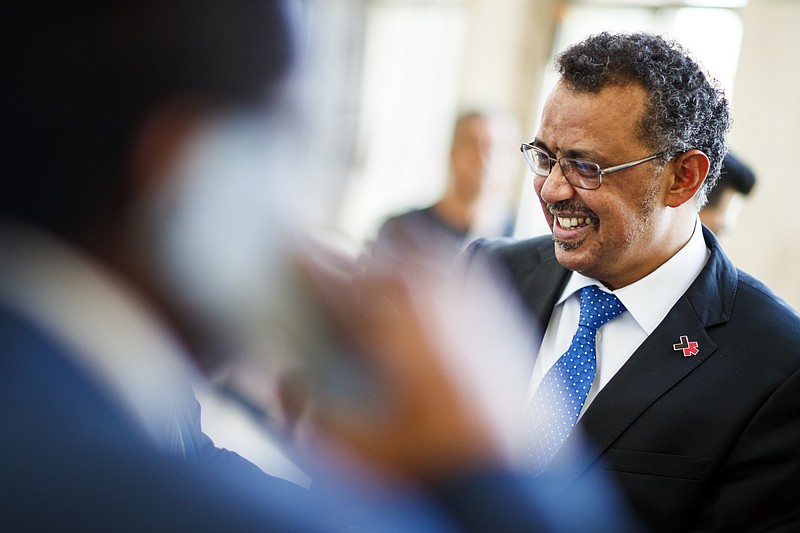GENEVA (AP) - Health ministers, diplomats and other high-level envoys were voting Tuesday to choose the next director-general of the World Health Organization, a post with considerable power in setting medical priorities that affect billions of people and declaring when crises like disease outbreaks evolve into global emergencies.
Following last-minute pitches from the three finalists, the doors were closed at the World Health Assembly for voting to begin. Of WHO's 194 member states, 185 were eligible to cast ballots; nine others were either in arrears on their dues or not represented at the gathering.
The final candidates were Tedros Adhanom Ghebreyesus, a 52-year-old former government minister in Ethiopia; Sania Nishtar, a 54-year-old cardiologist and former government minister from Pakistan; and David Nabarro, a 67-year-old physician and longtime U.N. official from Britain.
The winner will succeed Dr. Margaret Chan, who is ending a 10-year tenure.
In his address to delegates, Tedros, who is the only non-medical doctor in the race, said it was almost "pure luck" that he was competing to lead WHO, noting that when he was growing up in Ethiopia, his 7-year-old brother was killed by a common childhood disease, and it easily could have been him.
Among other pledges, Tedros said he would work "tirelessly to fulfill WHO's promise of universal health care." The former health minister has been dogged by allegations that he covered up cholera outbreaks while he worked in Ethiopia, and protesters have occasionally interrupted proceedings at this week's meeting.
Second to speak was Nabarro, who acknowledged that some have felt "let down" by WHO and want it to be more relevant, responsive and reliable. Nabarro said he knows "how the kitchen works in the United Nations" and cited lessons learned from WHO's mistake-ridden response to the 2014 Ebola outbreak in West Africa.
Nishtar was the last to appeal for votes. She said she decided to go into public health after being told the hospital where she worked in Pakistan would start using recycled catheters for patients who couldn't pay.
Nishtar cited her experience leading non-governmental organizations, saying the expertise would help her bridge the numerous polarizing situations in public health. She promised to bring accountability to WHO and said she was committed to visiting countries "not to cut ribbons but to work with you."
